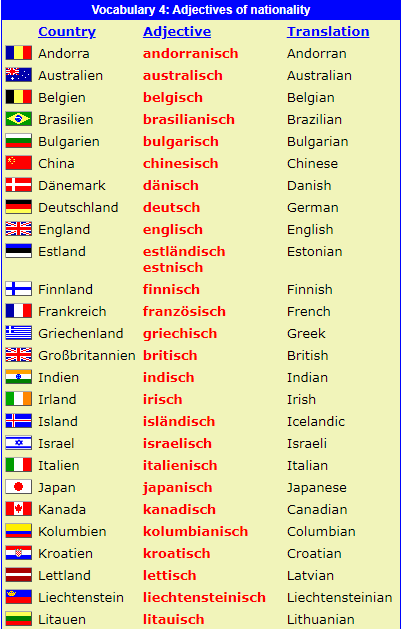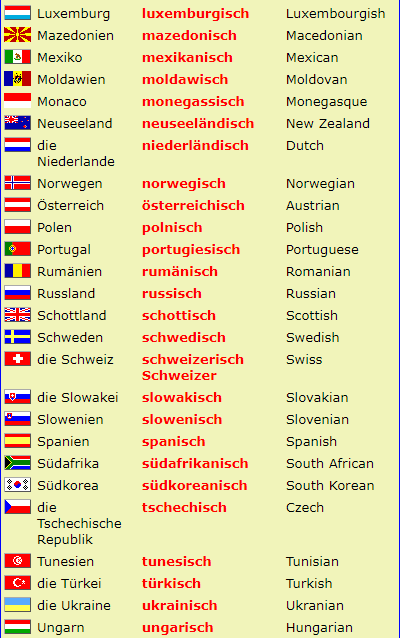In Chapter 2 we learned how to express your nationality, and discovered that wheras English uses an adjective - i.e. "I am English" -, German uses a noun without a different article - "Ich bin Engländer" (literally: "I am Englishman").



Grammatical Points
1. Unlike English, adjectives referring to countries take a small letter in German. Thus "my German uncle" would be translated as "mein deutscher Onkel".
2. Adjectives of nationality take adjective endings in exactly the same way as other adjectives.
3. There are two different adjectives to translate "Swiss". The first of these - "schweizerisch" behaves like any other adjective of nationality. The second however "Schweizer" always starts with a capital letter and never takes adjective endings. Thus "Swiss eggs" could either be translated as "schweizerische Eier" (= with endings) or "Schweizer Eier" (= without endings).





